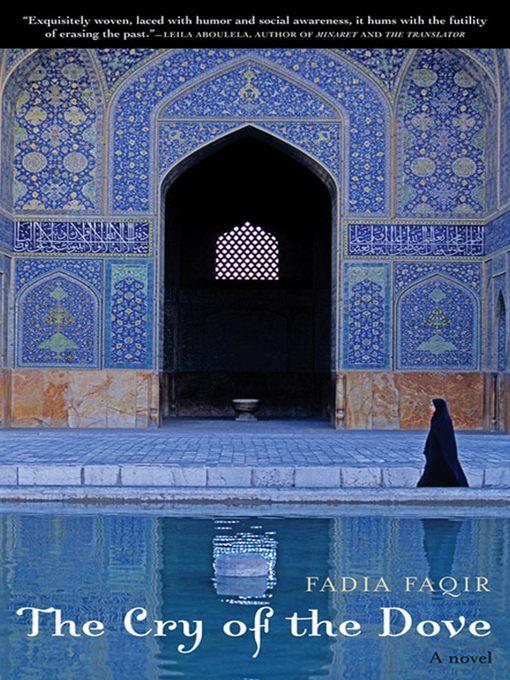
The Cry of the Dove
A Novel
- اطلاعات
- نقد و بررسی
- دیدگاه کاربران
نقد و بررسی

September 3, 2007
In Faqir's haunting, fragmented third novel (following Pillars of Salt), Bedouin teenager Salma Ibrahim El-Musa has become Sally Ascher, longing to fit in to her adopted rural Devon, England. As the novel unfolds in retrospect, Salma becomes pregnant by her lover, Hamdan, who repudiates her. Under threat of an honor killing at the hands of her family and tribe, Salma is put in protective prison custody, where her newborn daughter, Layla, is taken from her; she then escapes, with her family in pursuit. The story of Salma's flight alternates with her emigre travails, where she cruises bars, hopelessly picking up men: seeking human connection, self-inflicted punishment, and escape from the pain of being separated from Layla. Always Salma sees, lurking in the shadows, the figure of her brother, Mahmoud, coming to "shoot her between the eyes." Faqir skillfully weaves together the strands of Salma's life, and movingly follows her torturous path to asylum, and to her adult self and life.

Starred review from July 1, 2007
Jordanian British author Faqir ("Pillars of Salt") has written an exquisite novel describing the plight of Salma, a young Bedouin woman who has become pregnant before marriage and must flee her village to avoid being murdered by her brother, as the tribal code of honor killings demands. Told in the first person, the discontinuous narrative of Salma's life is as well constructed as a mosaic in which each tile is lovely in itself but helps to create a whole that is breathtaking. As the reader is taken back and forth in time, Salma reinvents herself as an immigrant in England, where she finds work as a seamstress, makes friends with a Pakistani woman also fleeing her family's wrath, copes with her aging alcoholic roommate, learns English, and eventually enters the university. Yet she is unable to escape her past; she's haunted by memories of her village childhood, eight years in protective custody in a Middle Eastern prison, time spent in a Lebanese convent, and, most important, the daughter taken from her. As Salma's life moves toward its inevitable climax, readers will be transfixed. Strongly recommended for all literary collections.Andrea Kempf, Johnson Cty. Community Coll. Lib., Overland Park, KS
Copyright 2007 Library Journal, LLC Used with permission.

August 1, 2007
The third novel from this provocative Jordanian author boldly addresses her ongoing theme of the vulnerability of Arab women inmale-dominated societies. Her protagonist is Salma, a member of a Bedouin tribe in Hima, the Levant, who at 16 becomes pregnant out of wedlockconsidered by her tribe a crime punishable by death. Imprisoned for her own safety, she gives birth five months later; her daughter is spirited away, and Salma is imprisoned eightmore years before being secretly released and sentto Southampton, England. There she works as a seamstress and barmaid, removes her veil and cautiously gains her independence. Faqir shifts her narrative abruptly between Salmas years in prison and her ongoing life, capturing the reader in a jarring juxtaposition of emotions. Salma dreams of someday going to Greecethe nearest she could get to her home without being shot. When her daughter is 16, Salma can no longer resist trying to find her, and in so doing risks everything she has become. A remarkable and exquisitely written tale of a repressive, still activetradition.(Reprinted with permission of Booklist, copyright 2007, American Library Association.)




دیدگاه کاربران